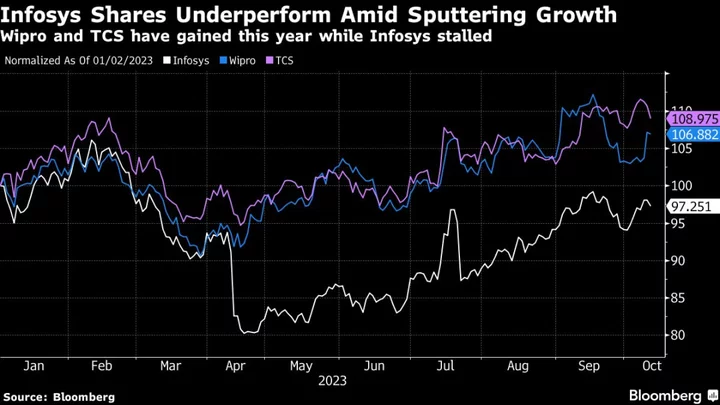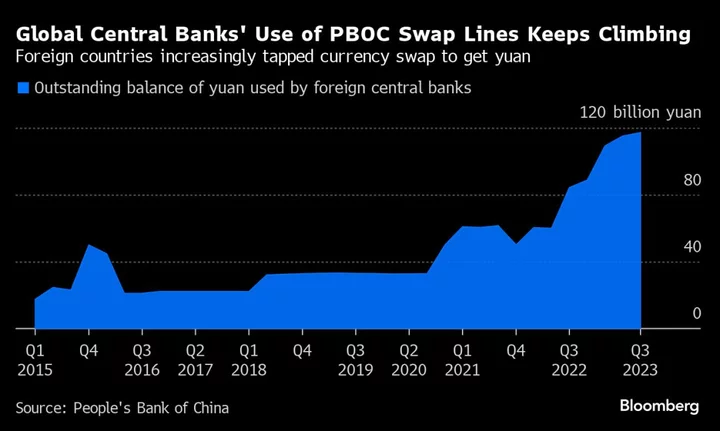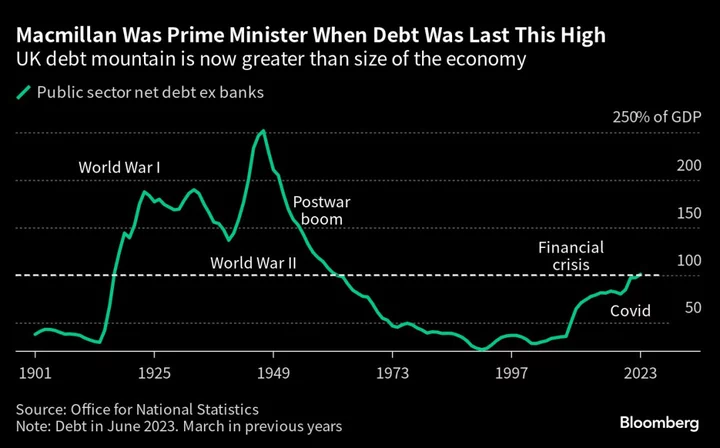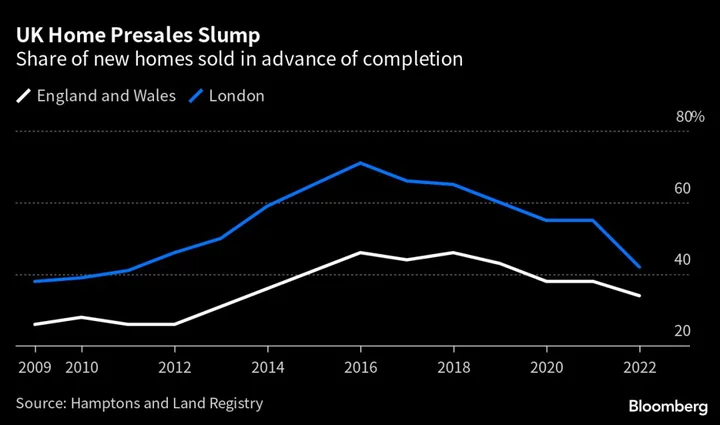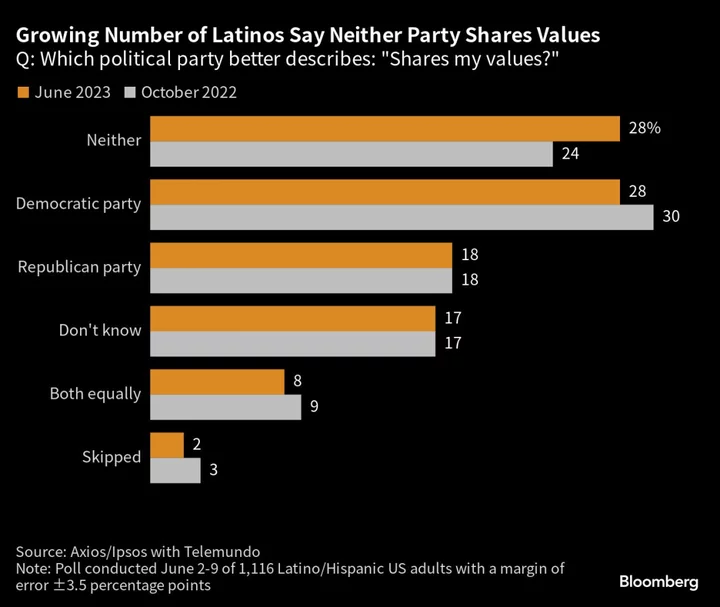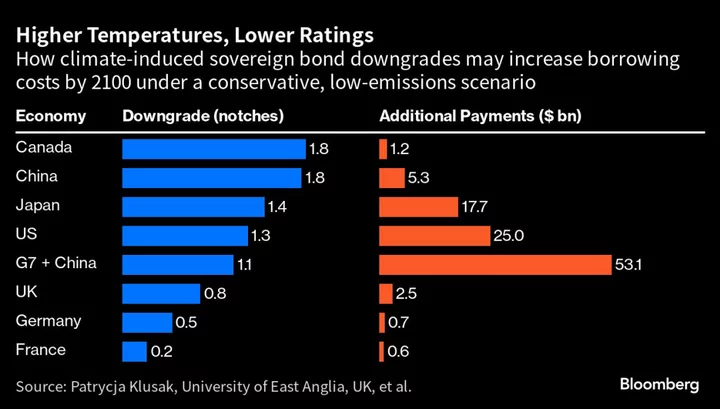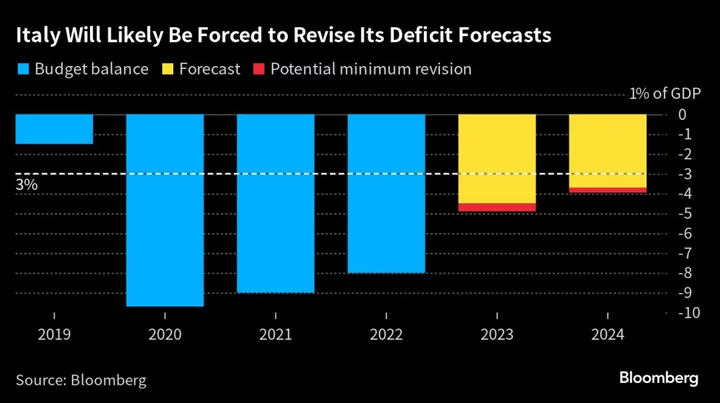Sign up for the India Edition newsletter by Menaka Doshi – an insider's guide to the emerging economic powerhouse, and the billionaires and businesses behind its rise, delivered weekly.
Infosys Ltd. trimmed its full-year sales forecast and warned it’s suspending some hiring, suggesting the global technology spending slump has room to run.
Shares of the IT colossus fell as much as 4.5% in early Mumbai trading after the company said revenue will increase 1% to 2.5% in the year through March 2024 — the slowest pace in six years. In July, it had already trimmed its forecast to a range of 1% to 3.5%. Analysts on average expected 5% growth.
Infosys, which employs hundreds of thousands, said it’ll halt student and graduate hiring to curtail expenditures. India’s second-largest software services exporter and global IT rivals such as Accenture Plc are struggling to maintain growth as corporations curtail expenditures to cope with higher interest rates and inflation.
“Last year, we hired about 50,000 freshers, and in a way we hired ahead of demand predicted,” Chief Financial Officer Nilanjan Roy said Thursday at a press conference. Now with demand slowing down, Infosys has stopped going to campuses, he said. “We’ll monitor this every quarter and looking at our future projections and then accordingly decide when do we go back,” he said.
Infosys and local IT rivals including Tata Consultancy Services Ltd. and Wipro Ltd. combined employ millions and typically hire aggressively from the country’s technology universities. A slowdown in demand for software and IT projects across the planet is now putting pressure on India’s economy just as Prime Minister Narendra Modi pushes for the South Asian nation to elevate its status as a global tech powerhouse.
Infosys is committed to hiring those it has already given offers, Roy said. He said the company is training its fresh hires with skills in technologies such as generative artificial intelligence to pivot to new growth areas.
For the fiscal second quarter through September, net income rose 3.2% to 62.1 billion rupees ($746 million), Infosys said. Analysts estimated 62.7 billion rupees on average. Sales rose 6.7% to 389.94 billion rupees, the slowest pace in more than five years.
On Wednesday, larger rival TCS reported quarterly profit that narrowly missed estimates, saying customers are conserving cash to prepare for a difficult period ahead. It said companies are postponing projects in the US and beyond, citing an uncertain economic outlook.
Still, Bengaluru-based Infosys and rivals remain optimistic about the long-term prospects for India’s more than $245 billion software services sector as companies adopt new technologies such as generative AI.
“What we’re seeing in the environment today is different things. One, on the digital programs and on the discretionary work there’s a continuous attention by clients to reduce or to stop them,” Infosys Chief Executive Officer Salil Parekh said at a press conference. “On the other side, there’s a tremendous interest in cost efficiency, automation where we happen to have a huge advantage in the market.”
What Bloomberg Intelligence Says
Infosys’ near-term sales growth will likely be challenged as enterprise IT spending weakens, with next year probably flat to a low-single-digit gain in constant currency, well below its medium-term potential of high-single- to low-double-digit increases. Otherwise, Infosys is well positioned in IT services, showing a strong digital footprint with more than 60% of total sales coming from emerging technologies. We expect the revenue slowdown to be offset by lower head count this year from previous years, which could help maintain flat operating margin for the full year.
- Anurag Rana and Lucas Ramadan, analysts
Click here for research

